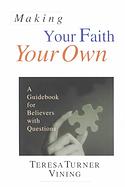Kerby Anderson looks at the comparisons between modern America and ancient Rome, i.e. the Roman Empire. Do Americans have a worldview more like ancient Romans than the biblical worldview spelled out in the Bible? In some ways, yes, and in other ways, not so much.
Similarities
The philosopher George Santayana once said: “Those who cannot remember the past are condemned to repeat it.” To which I might add that those who remember Santayana’s maxim also seem condemned to repeat the phrase.
 Ask anyone if they see similarities between Rome and America, and they are likely to respond with a resounding, “Yes!” But I have also found that people who see similarities between Rome and America see different similarities. Some see similarities in our moral decay. Others see similarities in pride, arrogance, and hubris. But all seem to agree that we are repeating the mistakes of the past and need to change our ways.
Ask anyone if they see similarities between Rome and America, and they are likely to respond with a resounding, “Yes!” But I have also found that people who see similarities between Rome and America see different similarities. Some see similarities in our moral decay. Others see similarities in pride, arrogance, and hubris. But all seem to agree that we are repeating the mistakes of the past and need to change our ways.
In his book Are We Rome?, Cullen Murphy argues that there are many similarities between the Roman Empire and America.{1} But he also believes that the American national character couldn’t be more different from Rome. He believes those differences can help us avoid Rome’s fate.
Let’s begin by looking at some of the political, geographical, and demographic similarities.{2}
1. Dominant powers: “Rome and America are the most powerful actors in their world, by many orders of magnitude. Their power includes both military might and the ‘soft power’ of language, culture, commerce, technology, and ideas.”
2. Approximately equal in size: “Rome and America are comparable in physical size—the Roman Empire and its Mediterranean lake would fit inside the three million square miles of the Lower Forty-eight states, though without a lot to spare.”
3. Global influence: “Both Rome and America created global structures—administrative, economic, military, cultural—that the rest of the world and their own citizens came to take for granted, as gravity and photosynthesis are taken for granted.”
4. Open society: “Both are societies made up of many peoples—open to newcomers, willing to absorb the genes and lifestyles and gods of everyone else, and to grant citizenship to incoming tribes from all corners of the earth.”
5. Culturally similar: “Romans and Americans can’t get enough of laws and lawyers and lawsuits. . . . They relish the ritual humiliation of public figures: Americans through comedy and satire, talk radio and Court TV; the Romans through vicious satire, to be sure, but also, during the republic, by means of the censorial nota, the public airing, name by name, of everything great men of the time should be ashamed of.”
6. Chosen people: “Both see themselves as chosen people, and both see their national character as exceptional.”
While there are many similarities, there are also profound differences between Rome and America. Before we look at the six major parallels that Murphy talks about, we need to remind ourselves that there are many distinct differences between Rome and America.
Differences
It is no real surprise that people from different political and religious perspectives see similarities between Rome and America. While some see similarities in moral decay, others see it in military might or political corruption. Although there are many similarities between Rome and America, there are some notable differences.
Cullen Murphy points out these significant differences.{3}
1. Technological advancement: “Rome in all its long history never left the Iron Age, whereas America in its short history has already leapt through the Industrial Age to the Information Age and the Biotech Age.”
2. Abundance: “Wealthy as it was, Rome lived close to the edge; many regions were one dry spell away from famine. America enjoys an economy of abundance, ever surfeit; it must beware the diseases of overindulgence.”
3. Slavery: “Rome was always a slaveholding polity with the profound moral and social retardation that this implies; America started out as a slaveholding polity and decisively cast slavery aside.”
4. Government: “Rome emerged out of a city-state and took centuries to let go of a city-state’s method of governance; America from early on began to administer itself as a continental power.”
5. Social classes: “Rome had no middle class as we understand the term, whereas for America the middle class is the core social fact.”
6. Democracy: “Rome had a powerful but tiny aristocracy and entrenched ideas about the social pecking order; even at its most democratic, Rome was not remotely as democratic as America at its least democratic, under a British monarch.”
7. Entrepreneurship: “Romans looked down upon entrepreneurship, which Americans hold in the highest esteem.”
8. Economic dynamism: “Rome was economically static; America is economically transformative.”
9. Technological development: “For all it engineering skills, Rome generated few original ideas in science and technology; America is a hothouse of innovation and creativity.”
10. Social equality: “On basic matters such as gender roles and the equality of all people, Romans and Americans would behold one another with disbelief and distaste.”
While it is true that Rome and America have a vast number of similarities, we can also see there are significant differences between the two. We therefore need a nuanced view of the parallels between the two civilizations and recognize that these differences may be an important key in understanding the future of the United States.
Six Parallels
Murphy sees many parallels between the Roman Empire and America in addition to the above.{4} The following are larger, more extensive, parallels.
The first parallel is perspective. It actually involves “the way Americans see America; and more to the point, the way the tiny, elite subset of Americans who live in the nation’s capital see America—and see Washington itself.”
Like the Romans, Americans tend to see themselves as more important than they are. They tend to have an exaggerated sense of their own presence in the world and its ability to act alone.
A second parallel involves military power. Although there are differences, some similarities stand out. Both Rome and America start to run short of people to sustain their militaries and began to find recruits through outside sources. This is not a good long-run solution.
A third parallel can be lumped under the term privatization. “Rome had trouble maintaining a distinction between public and private responsibilities.” America is currently in the midst of privatizing functions that used to be public tasks.
A fourth parallel concerns the way Rome and America view the outside world. In a sense, this is merely the flip side of the first parallel. If you believe your country is exceptional, you tend to devalue others. And more importantly, you tend to underestimate another nation’s capabilities. Rome learned this in A.D. 9 when three legions were ambushed by a smaller German force and annihilated.{5} The repercussions were significant.
The question of borders is a fifth parallel. The boundary of Rome “was less a fence and more a threshold—not so much a firm line fortified with ‘Keep Out’ signs as a permeable zone of continual interaction.” Compare that description to our border with Mexico, and so can see many similarities.
A final parallel has to do with size and complexity. The Roman Empire got too big physically and too complex to manage effectively. The larger a country or civilization, the more “it touches, and the more susceptible it is to forces beyond its control.” To use a phrase by Murphy: “Bureaucracy is the new geography.”{6}
Cullen Murphy concludes his book by calling for greater citizen engagement and for us to promote a sense of community and mutual obligation. The Roman historian Livy wrote, “An empire remains powerful so long as its subjects rejoice in it.” America is not beyond repair, but it needs to learn the lessons from the Roman Empire.
Decline of the Family
What about the moral decline of Rome? Do we see parallels in America? I have addressed this in previous articles such as “The Decline of a Nation” and “When Nations Die.”{7} Let’s focus on the area of sexuality, marriage, and family.
In his 1934 book, Sex and Culture, British anthropologist Joseph Daniel Unwin chronicled the historical decline of numerous cultures, including the Roman Empire. He found that cultures that held to a strong sexual ethic thrived and were more productive than cultures that were “sexually free.”{8}
In his book Our Dance Has Turned to Death, Carl Wilson identifies the common pattern of family decline in civilizations like the Roman Empire.{9} It is significant how these seven stages parallel what is happening in America.
In the first stage, men ceased to lead their families in worship. Spiritual and moral development became secondary. Their view of God became naturalistic, mathematical, and mechanical.
In the second stage, men selfishly neglected care of their wives and children to pursue material wealth, political and military power, and cultural development. Material values began to dominate thought.
The third stage involved a change in men’s sexual values. Men who were preoccupied with business or war either neglected their wives sexually or became involved with lower-class women or with homosexuality. Ultimately, a double standard of morality developed.
The fourth stage affected women. The role of women at home and with children lost value and status. Women were neglected and their roles devalued. Soon they revolted to gain access to material wealth and also freedom for sex outside marriage. Women also began to minimize having sex relations to conceive children, and the emphasis became sex for pleasure.
In the fifth stage, husbands and wives competed against each other for money, home leadership, and the affection of their children. This resulted in hostility and frustration and possible homosexuality in the children. Many marriages ended in separation and divorce.
In the sixth stage, selfish individualism grew and carried over into society, fragmenting it into smaller and smaller group loyalties. The nation was thus weakened by internal conflict. The decrease in the birthrate produced an older population that had less ability to defend itself and less will to do so, making the nation more vulnerable to its enemies.
Finally, unbelief in God became more complete, parental authority diminished, and ethical and moral principles disappeared, affecting the economy and government. Because of internal weakness and fragmentation, the society came apart.
We can see these stages play out in the decline of the Roman Empire. But we can also see them happening before our eyes in America.
Spiritual Decline
What about the spiritual decline in Rome and America? We can actually read about the spiritual decline in Rome in Paul’s letter to the church in Rome. In the opening chapter he traces a progression of spiritual decline that was evident in the Hellenistic world of his time.
The first stage is when people turn from God to idolatry. Although God has revealed Himself in nature to all men so that they are without excuse, they nevertheless worship the creation instead of the Creator. This is idolatry. In the past, this took the form of actual idol worship. In our day, it takes the form of the worship of money or the worship of self. In either case, it is idolatry. A further example of this is a general lack of thankfulness. Although they were prospered by God, they were ungrateful. And when they are no longer looking to God for wisdom and guidance, they become vain and futile and empty in their imaginations. They no longer honor God, so their foolish hearts become darkened. In professing to be wise, they have become fools.
The second stage is when men and women exchange their natural use of sex for unnatural uses. Here Paul says those four sobering words, “God gave them over.” In a society where lust-driven sensuality and sexual perversion dominate, God gives them over to their degrading passions and unnatural desires.
The third stage is anarchy. Once a society has rejected God’s revelation, it is on its own. Moral and social anarchy is the natural result. At this point God has given the sinners over to a depraved mind and so they do things which are not proper. This results in a society which is without understanding, untrustworthy, unloving, and unmerciful.
The final stage is judgment. God’s judgment rightly falls upon those who practice idolatry and immorality. Certainly an eternal judgment awaits those who are guilty, but a social judgment occurs when God gives a nation over to its sinful practices.
Notice that this progression is not unique to the Hellenistic world the apostle Paul was living in. The progression from idolatry to sexual perversion to anarchy to judgment is found throughout history.
In the times of Noah and Lot, there was the idolatry of greed, there was sexual perversion and promiscuity, there was anarchy and violence, and finally there was judgment. Throughout the history of the nation of Israel there was idolatry, sexual perversion, anarchy (in which each person did what was right in his own eyes), and finally judgment.
Are there parallels between Rome and America? I have quoted from secular authors, Christian authors, and a writer of much of the New Testament. All seem to point to parallels between Rome and America.
Notes
1. Cullen Murphy, Are We Rome? The Fall of an Empire and the Fate of America (New York: Houghton Mifflin, 2007).
2. Ibid., 14-15.
3. Ibid., 16-17.
4. Ibid., 18-20.
5. Ibid., 122.
6. Ibid., 135.
7. Kerby Anderson, “The Decline of a Nation,” Probe Ministries, 1991, and “When Nations Die,” 2002; both available on Probe’s Web site, www.probe.org.
8. J.D. Unwin, Sex and Culture (London: Oxford University, 1934).
9. Carl Wilson, Our Dance Has Turned to Death (Carol Stream, IL: Tyndale, 1981), 84-85.
© 2009 Probe Ministries
 One of my favorite explanations comes from Dr. Henry Cloud in his book Changes That Heal. He gives a delightful application to one of Jesus’ parables in Luke 13.
One of my favorite explanations comes from Dr. Henry Cloud in his book Changes That Heal. He gives a delightful application to one of Jesus’ parables in Luke 13.
 I want to recommend an excellent resource to you that will help build your faith by wrestling with the truth that will allow your faith to rest on the fact that it’s TRUE and not some warm fuzzy feeling. Teresa Vining wrote Making Your Faith Your Own after having some similar struggles to yours while she was in college.
I want to recommend an excellent resource to you that will help build your faith by wrestling with the truth that will allow your faith to rest on the fact that it’s TRUE and not some warm fuzzy feeling. Teresa Vining wrote Making Your Faith Your Own after having some similar struggles to yours while she was in college. 